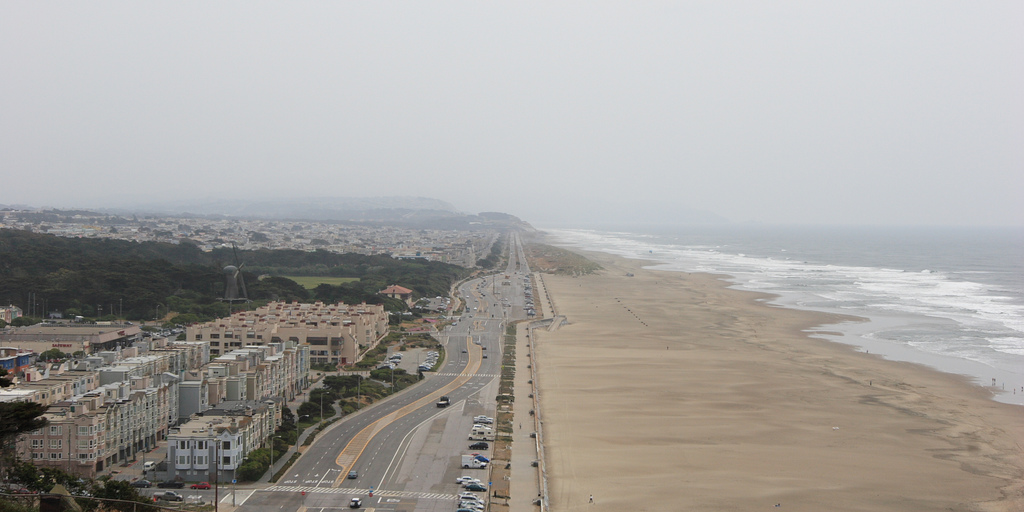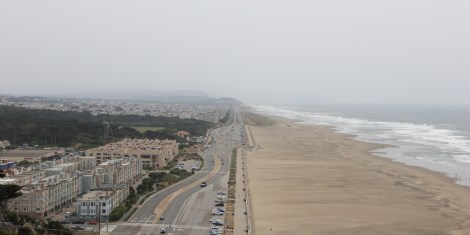When you live on a coastline, looking down the barrel of imminent and unstoppable rising sea levels, sometimes “managed retreat” is your only option. What if we rerouted the highways before they ever flooded?
That’s the thinking behind San Francisco’s Master Plan for the city’s western shoreline. This retreat is not just managed, but proactive. KQED reports on the “test case” that other coastal cities will be watching: a more than $350 million plan to move the Great Highway and allow the surf to reclaim its turf.
“A lot of the things we’re recommending at Ocean Beach are very expensive,” says Benjamin Grant, who manages the Ocean Beach Master Plan for the San Francisco Planning and Urban Research Association (SPUR). “But you have to set them against the costs of the band-aid measures already taking place.”
SPUR is acting as a facilitator for the project, bringing together the myriad city, state, and federal organizations involved.
“We can’t close our eyes to what’s coming and it’s definitely going to get worse and not better,” Grant says. “If we can find a way to work with those processes to achieve the kinds of outcomes and build the kinds of places we want to have in our city, then we’ll be ahead of the game.”
Planning students noodling with designs for this retreat say the reroute “makes it possible to re-imagine the southern end of Ocean Beach as a more socially and ecologically beneficial landscape.” San Francisco is rare in its comprehensive climate change planning, maybe because it’s also rare in being a city surrounded by water on three sides.
But will the city really be able to pave the way for preemptive urban planning for rising seas nationwide, or will we have to suffer a few more Super Sandys before we start really retreating?




